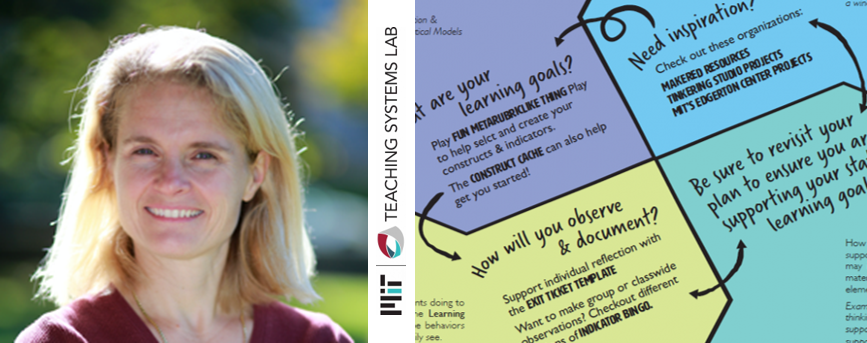
Meredith Thompson is a research scientist at the Teaching Systems Lab (TSL) and the Scheller Teacher Education Program (STEP). Her research interests are in the use of games and simulations in helping students learn science, technology, engineering, and mathematics topics and the use of games and simulations in developing playful approaches to teacher education.
Meredith is also the co-PI on an education research project funded by the MIT Integrated Learning Initiative. She and professor Eric Klopfer are working on Collaborative Learning Environments in Virtual Reality (CLEVR) to determine when VR might enable more effective learning and when VR is most useful in different types of learning experiences.
When and how did you become interested in Education and Learning?
I have been interested in education and learning for as long as I can remember. I am curious about the natural world and about how we can address problems through engineering. My dad is a cardiologist who always encouraged us to explore and investigate and ask questions. Even now I do science explorations with my two boys and we have a mini maker space – and breaker space - in my basement.
Describe the Teaching Systems Lab Playtest and how educators can get involved?
The Teaching System Lab is always creating new games and simulations to help develop a playful approach to teacher education. We invite the community and run a community event every 8 weeks called a “Dine and Play”. We introduce the idea, break up into smaller groups to try out two ideas, and then reconvene to have dinner together. People who are interested in learning more about what we do, trying out new ideas, or even just engaging in a community discussion about education and teacher preparation are welcome to join us. Educators are encouraged to sign up on the TSL website https://tsl.mit.edu/next-playtest/
Where do you see Virtual Reality having the biggest impact in education?
Initially, virtual reality will be a novel experience, and that will be motivating to learners. Eventually, VR will become one of many tools we can use to understand topics and explore ideas. Most of our education focuses on developing cognitive skills, VR enables learners to interact with and learn material so that our entire bodies can be involved in the learning process. VR can help expand the ways we learn and think about material.
It would be wonderful to be able to learn collaboratively by putting on a VR head set talking with and learning from people from around the world. That would be great.
What do you consider the biggest challenge facing educators today?
Educators face many different challenges depending on where, how, and what they teach. That said, time and resources are a big challenge across the board. There is a myth that some new technology (VR included) will completely revolutionize learning. Teachers play a key role in taking innovations in technology and approaches to teaching and learning and making them feasible for learners.
What is your favorite thing about working at MIT?
The MIT environment is a wonderful place. I work with and learn from an amazing and inspirational group of designers, researchers, educators, creators, and MIT students. I love working with MIT students and learning more about their pathways to MIT and their next steps. People come from all around the world to share their ideas, and it creates a rich and inspirational environment.